Electric vehicle charging is an essential part of electric vehicle use. Here are some key points on electric car charging:
- Charging options:
- Home charging: most electric car owners charge their vehicles at home charging points. Most car owners charge their cars at home, allowing convenient and economical charging at night or at other convenient times. Setting up a home charging point requires a special charging device that can be installed in your home's electrical system.
- Public charging points: Public charging points are widely available in cities, car parks, shopping centres and other public places. They can be fast chargers, which allow you to charge your vehicle faster, or conventional chargers, which are suitable for longer stops, for example during working hours or when you go shopping.
- Charging networks: Charging networks provide widespread access to public charging points. These networks may require registration, a charging card or an app, and often offer multiple charging options at different speeds.
- Charging speed:
- The charging speed depends on the charger and the capacity of the vehicle. Fast chargers are usually able to charge an electric car battery faster, but they also require a more powerful power supply.
- Conventional chargers take time and can take from several hours to several nights to fully charge, depending on battery capacity and charging power.
- New technologies and advances in chargers are enabling ever faster charging, for example 100 kW, 150 kW or even faster.
- Charging time planning:
- Electric car owners can plan charging according to their needs. For example, a home charging point can be used at night, when electricity prices are lower and the grid load is lighter.
- During a journey, public charging points can be used to top up the battery to the required level, or fast chargers can be used if more charging power is needed in a short time.
- Cost of charging:
- The cost of charging an electric car depends on the price of electricity and the charging possibilities. In general, it is cheaper to drive an electric car than an internal combustion engine car. The cost of charging can vary depending on the country, the region and the electricity provider's prices.
- If you charge your electric car at home, the cost of charging is usually lower, as you can take advantage of cheaper nightly electricity rates or a home solar panel system. When using public charging points, the price may vary depending on the charging network and the area. Some charging networks may offer free charging or charge monthly fees.
- You can calculate the cost by following these steps:
- See the price of electricity offered by your electricity supplier (kW/h).
- Check the battery capacity (kWh) or driving range (in kilometres) of your electric car.
- Multiply the price of electricity (kW/h) by the capacity of the car battery (kWh) or by the driving distance (in kilometres). This will give you the total cost of charging.
- It is important to note that the cost of charging can also vary according to the charging time, the capacity of the charger used and the charging efficiency. Also, some charging networks or charging cards may charge additional fees or monthly charges.
- Electric car charging offers a number of benefits, including more economical and environmentally friendly driving. Before buying an electric car, I recommend researching local electricity prices, charging options and possible incentives or subsidies for electric car owners.
